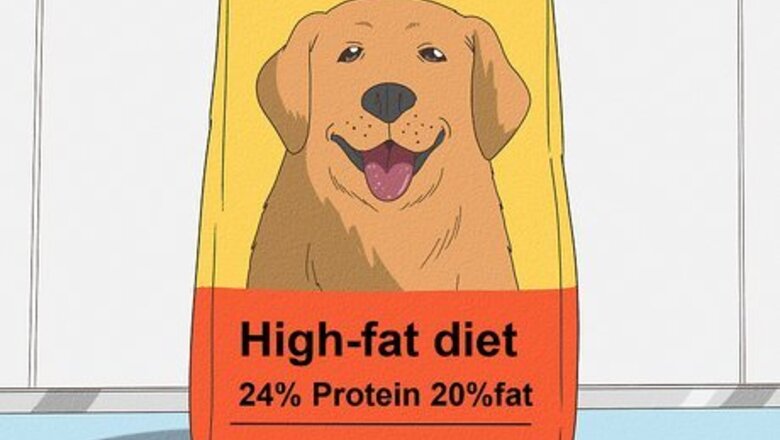
views
- Signs of pancreatitis include nausea, vomiting, diarrhea, lethargy, loss of appetite, gagging, and excessive drooling.
- Pancreatitis is often caused by a high-fat diet, but it can also be caused by obesity or certain medications.
- Most dogs recover from pancreatitis with little issue. Treatment includes fluids, pain management, and anti-nausea medication.
Signs of Pancreatitis
Look for a hunched back, nausea, or lethargy—signs of pancreatitis. If your dog is suffering from a case of pancreatitis, there’s a good chance that they’ll have some physical symptoms or behavioral changes. Specifically, their symptoms might be: A hunched back: if your dog’s sitting or standing in an unnatural position, it’s likely due to abdominal pain Nausea: vomiting and diarrhea are normal on occasion for dogs, but if they’re happening repeatedly or for days at a time, this is a sign of pancreatitis Lethargy: your dog might have less energy; they might start sleeping more or refuse to go on walks with you Swollen abdomen: check whether your dog’s abdomen is distended or swollen—this could be a sign that they’re suffering from pancreatitis Gagging: heaving and gagging is a sure sign of an upset stomach in dogs, so if you notice your dog gagging regularly, they might be dealing with pancreatitis Salivating: when your dog has an upset stomach, they might start salivating. If you notice your dog salivating more than usual, this could be due to pancreatitis
Causes
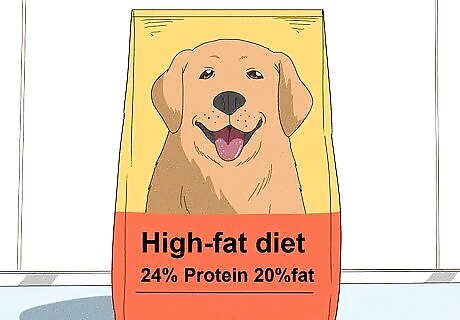
High-fat diet A diet high in fat makes the pancreas work overtime. After years of eating fatty foods, your dog could develop pancreatitis. In general, any dog food that contains more than 20% fat is considered high-fat.
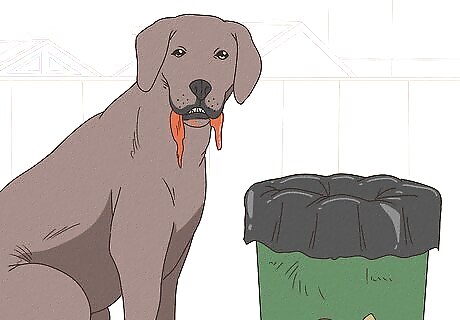
Dietary indiscretion “Dietary indiscretion” is a fancy way of saying that your dog will eat anything. Studies have shown that dogs who eat unusual food items (like dirt, toys, or garbage) have a higher risk of developing pancreatitis.

Obesity If your dog is overweight, they may be stressing their pancreas. Over time, their pancreas could become inflamed, leading to pancreatitis.
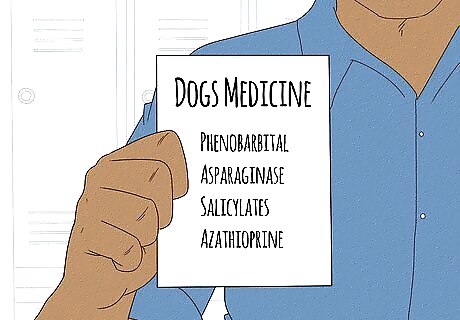
Medications Certain medications, including calcium, cholinesterase inhibitors, potassium, phenobarbital, asparaginase, salicylates, azathioprine, estrogen, thiazide diuretics, and vinca alkaloids, increase the risk of pancreatitis in animals. If your dog is on any medications, list them to your vet so they can see if that’s what’s causing their issues.
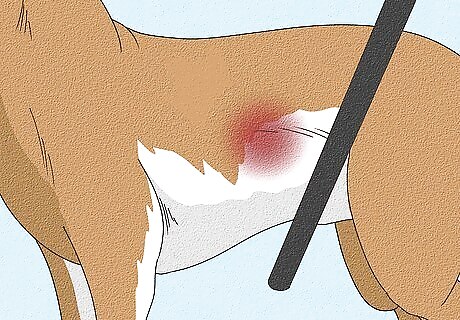
Trauma Blunt force trauma can harm your dog’s pancreas, leading to inflammation. If your dog was recently in an accident, that could be the cause of their pancreatitis.
Vet Diagnosis
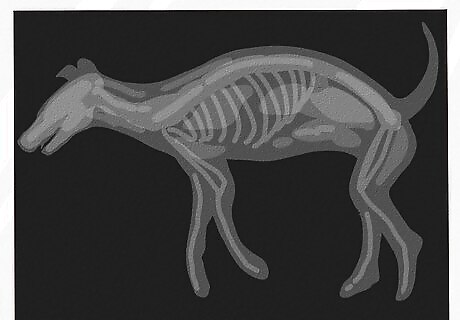
Your vet might run a physical exam, blood tests, and x-rays. First, your vet’s likely to check your dog for a swollen pancreas, then follow up with questions about their symptoms and medical history. Then, to check for infection, inflammation, or anemia that might be to blame, they’re likely to run a quick blood test. If your vet hasn’t made a diagnosis yet, they might finish up with an x-ray—this can help them determine whether your dog’s pancreas is swollen (with more certainty than a physical exam).
Acute vs. Chronic Pancreatitis
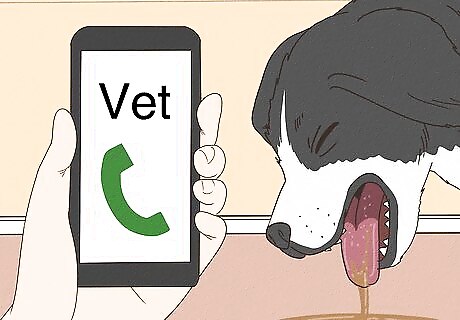
Acute pancreatitis is sudden. You might notice that your dog gets sick very quickly: one day they’re fine, and the next day they’re lethargic, vomiting, and uninterested in food. Acute pancreatitis can be life-threatening, so it’s important to take your dog to the vet right away.
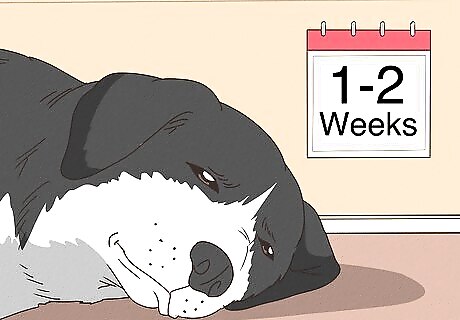
Chronic pancreatitis develops slowly over time. Your dog may have 1 to 2 symptoms for a couple of days or weeks, and then slowly get sicker over time. However, you will notice that your dog is in pain or discomfort. Chronic pancreatitis can be more difficult to spot and diagnose, since it happens slowly over time. However, treatment options for both acute and chronic pancreatitis are the same.
Treatment
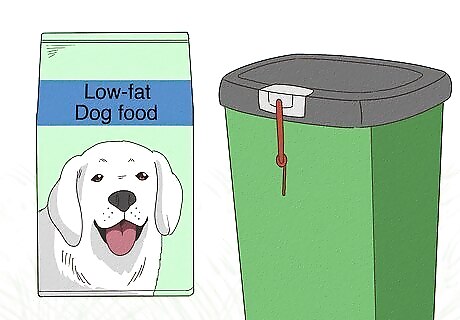
Improved diet Since pancreatitis is often caused by a high-fat diet, your vet may recommend switching to low-fat dog food and limiting their treats. If your dog tends to get into things that aren’t food, try to limit their access by locking up garbage and cleaning up clutter off the floor.
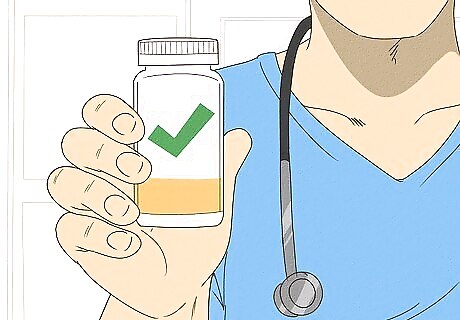
Pain medication Pancreatitis is painful, and your pup might be in some discomfort. Your vet will likely prescribe your dog opioids or synthetic opioids as needed. Usually, your dog will only be on pain medication for a couple of days, or until their symptoms subside.
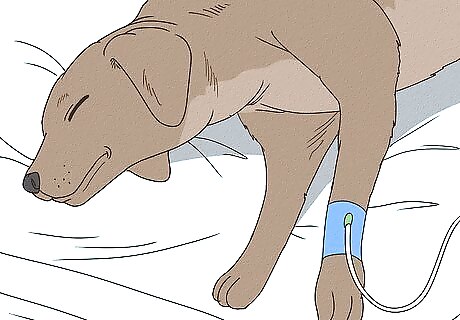
Fluids Your dog may not be drinking enough water since they are in pain. If your dog is dehydrated, your vet will hook them up to an IV to give them fluids and electrolytes.
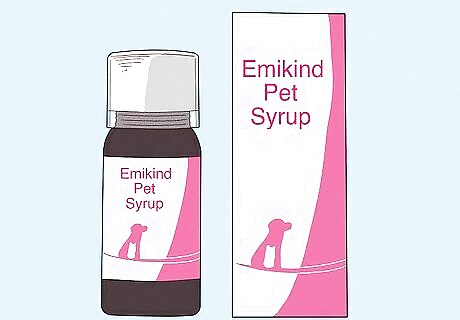
Anti-vomiting medication Vomiting is very dehydrating, and can be stressful for your dog. If your dog has been throwing up for multiple days, your vet will likely give you some anti-nausea or anti-vomiting medication to help them for a few days, or until they can hold food down on their own.

Antacids Your dog may be drooling or experiencing acid reflux as a result of pancreatitis. If that’s the case, your vet will prescribe them antacids to aid in digestion for a couple of days.
Prognosis
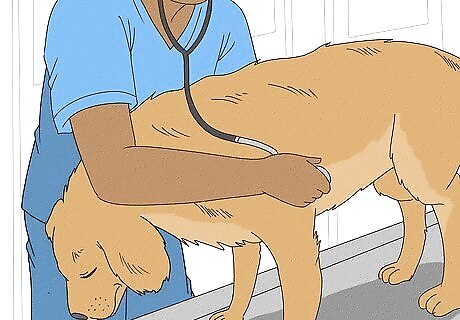
The prognosis of pancreatitis depends on its severity. Most dogs who have mild to moderate pancreatitis recover with few issues very quickly. Dogs with severe pancreatitis may need long-term treatment, and the condition can become life-threatening. In general, if you take your dog to the vet as soon as you notice something is wrong, they will recover with little to no issues.




















Comments
0 comment